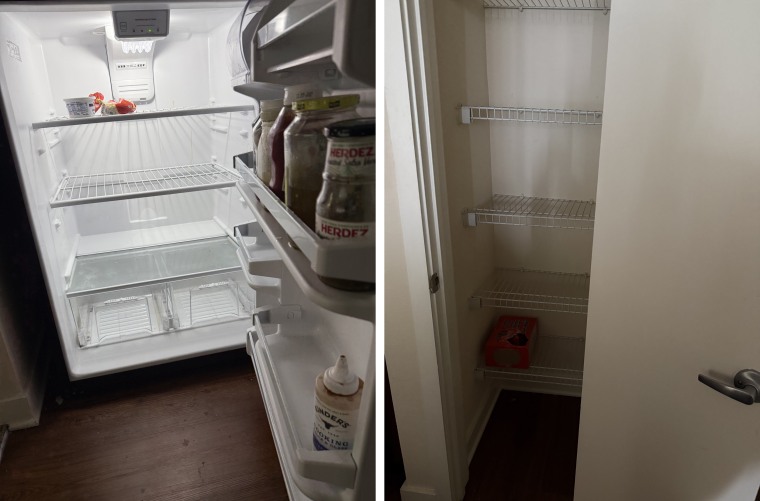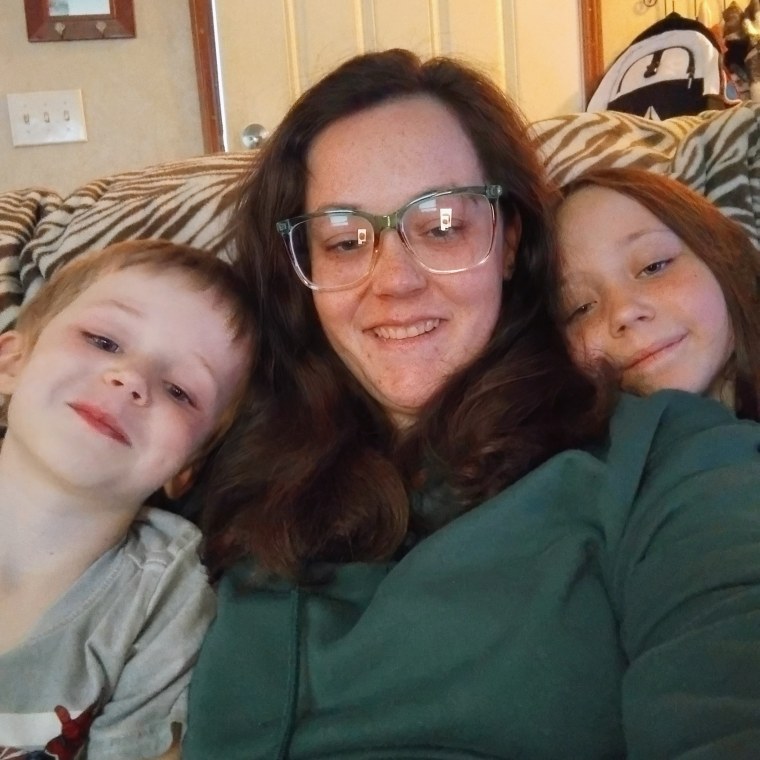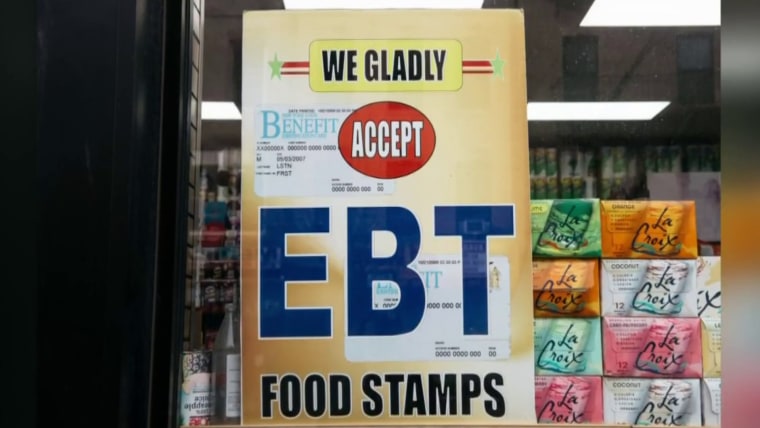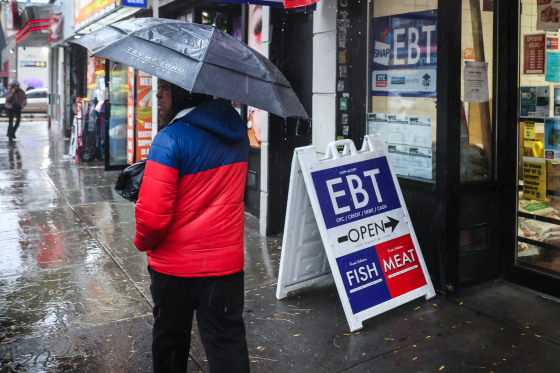Gia Haley is trying to survive on water and coffee.
Haley, 41, said she has been out of groceries since Oct. 29, and the monthly $298 she receives in food assistance did not arrive as it ordinarily would have on Wednesday.
“The black coffee kind of kills my appetite,” she said.
Haley is one of more than 40 million people across the country who count on the Supplemental Nutrition Assistance Program, a federal benefit that dates back to the late 1930s. But disruptions to SNAP, also known as food stamps, during what has become the longest government shutdown in American history have left recipients facing imminent hunger, unable to restock their pantries or refrigerators.
Although the Trump administration said partial funds would be distributed this month — a response to a lawsuit challenging its plan to suspend SNAP payments during the shutdown — recipients who were due to receive their benefits this week have empty balances.
On Thursday, the federal judge in that lawsuit ordered the Trump administration to distribute SNAP funding in full to states by Friday, though it remains to be seen whether recipients’ electronic benefits cards will be refilled that quickly. Previously, Agriculture Secretary Brooke Rollins had said it could take several weeks to deliver the benefits.
Already, the delay has forced millions of families to get by on small collections from food banks or the generosity of loved ones. Many face the prospect of falling short on bills so they can eat, or, like Haley, are forgoing meals altogether.
“I will get hunger pains at some point, but I just ignore them,” she said, fighting back tears. “I just tell myself I’m on a fast.”

SNAP has never lapsed during a government shutdown before. The turmoil — and resulting uncertainty about when their electronic benefits cards will be reloaded — has put recipients on edge, with many parents unsure of how they will feed their children.
“I haven’t been sleeping,” said Erica Arneson, 40, a single mother who is disabled and lives in Tacoma, Washington. “I’m so stressed that I’m up all night.”
Arneson said she was due to receive $546 in SNAP benefits on Monday, but her account balance is still zero. She apologized to her 17-year-old son for being unable to provide his favorite meal.

“I had to tell him last night that we’re not going to be able to do burritos until I don’t know when, because we don’t have the meat or the cheese,” she said.
Kaylee Greene’s account is empty, too. Starting Saturday, her EBT card should have had $1,000 on it to feed her family of four.
“It breaks my heart because I’ve never had to tell my kids ‘no’ for food. They know when I get the food stamps, so they’re saying, ‘Mommy, your food money should be here.’ And I’m trying to explain to them, we’re not getting our food money right now,” said Greene, 33, who lives in Monticello, New York, a rural area about two hours from Manhattan.

In the lawsuit over SNAP funding, the Department of Agriculture had argued that it could not legally use contingency funds for the program during the shutdown because the money was earmarked for situations like natural disasters. After the federal judge ordered the Trump administration last week to distribute benefits “as soon as possible,” the administration said it would partially fund the program in November. It planned to use $4.65 billion in contingency funds to cover 65% of the allotments that eligible households would ordinarily get.
Thursday’s order that the administration must immediately distribute SNAP funding in full came in response to an emergency filing from Democracy Forward, the progressive group that brought the lawsuit.

The White House did not respond to a request for comment. When asked about the delayed SNAP payments and recipients’ challenges, a USDA spokesperson said in a statement that Senate Democrats “voted 14 times against reopening the government” and “are withholding services to the American people.”
In Midlothian, Texas, a suburb of Dallas and Fort Worth, Amber Templin is struggling to feed her five children, including two who she said have special needs and eat limited diets. Templin, 31, said she has no cash savings.
She typically receives a $540 deposit on her EBT card on the sixth day of each month, she said. But the state health department told her via text message that her funds will “not be issued at this time,” leaving her balance at zero on Thursday.
“What are we supposed to do? It’s now a choice between food and bills,” Templin said. “Do we keep a roof over our head or do I feed my children? Do I pay the electricity bill or do I feed my children?”

Templin makes a living cleaning houses and offices, a small business she launched in March. But things have slowed since the summer, so she has applied for various part-time roles, including at a gas station, a towing company, a hotel and some grocery stores. Even if she gets one of those jobs, the wages will be low.
“Nobody wants to pay part-time workers what it takes to support your family,” Templin said.
She has heard that some SNAP beneficiaries are donating blood or plasma for extra cash. But Templin said she can’t even do that because she has cirrhosis and anemia.
Food banks across the country say they are being stretched thin because of the sheer amount of need. Operation Food Search, which serves people in Illinois and Missouri, has seen record demand, according to Kristen Wild, the organization’s president. Wild said some food pantries have been forced to limit the amount they give families or the number of times families can visit. Others have closed early after running out of food, she said.
“The fact that, since Saturday, people have not had those funds on their EBT cards has led people to be in a desperate situation and going hungry — not just not eating well or not eating nutritiously, but not having food to put on the table,” Wild said.
Her organization is relying on private and corporate donations to meet the moment, she said. Dozens of states have also freed up funds to support food banks or supplement the loss of SNAP benefits.
Even before the federal government shut down, SNAP beneficiaries were struggling to afford food after years of supply chain disruptions, inflation and other economic forces. LaTonya Gamble, a 50-year-old self-published author in Erie, Pennsylvania, said she is routinely shocked by the price tags on basic staples.
“I’m trying to feed my family. I went to the grocery store just yesterday and it cost me $50 just to buy potatoes, milk, a loaf of bread, cheese and eggs. The basic things for a meal. I wouldn’t be able to keep doing that” without SNAP benefits, she said.
Gamble, who said she typically gets a monthly distribution of $240, doesn’t have cash savings to draw from. She is concerned about how to feed herself and her 32-year-old son, who was diagnosed with schizophrenia as a teenager and lives with her.
Around 4 in 5 households that rely on SNAP include a child, an older adult or someone with a disability. To qualify, a family of three must generally have an annual income below $35,000.

Haley, who lives in New Orleans, has been calling the Louisiana health department to see if her benefits are on their way. She keeps getting the same response from an automated system: Her EBT card has a balance of 68 cents, and there are no pending deposits.
She lamented the impasse in Washington, D.C., describing the state of the SNAP program as “cruelty masked as law and order.”
“Not all of us are trying to live off the government,” she said, “but if that’s our only option, then we should never be ashamed of that.”
We’d like to hear from you about how you’re experiencing the government shutdown, whether you’re a federal employee who can’t work right now, a person who relies on federal benefits like SNAP, or someone who is feeling the effects of other shuttered services in your everyday life. Please contact us at [email protected] or reach out to us here.


